


from 'The Lord's Supper' Dr Scott Hahn Darton Londman Todd 10:0-23252500-5
'Cannibalism' and 'human sacrifice' were charges often wispered aganst the first generation of Christians. The early Christian apologists took them up in order to dismiss them as gossip. Yet through the distorted lens of the pagans' gossip, we can see what was the most identifiable element of Christian life and worship.
It was the EUCHARIST; the re-presentation of the sacrifice of Christ, the sacramental meal , where Christians consumed Jesus'body and the blood. t was the distortion of these acts of faith that led to pagan calumnies against the Church , only the baptised (those initiated into the Body of Christ-Editor)-though it is easy to see how the pagans misunderstood. In the early church only the baptised were permitted to attend the sacraments and Christians were discouraged from even duscussing these central mysteries with non Christians. So the pagan imagination was left t run wild, fueled by small scaps of fact 'this is my body....theis is the cup of my blood...Unless you eat the flesh of the son of man and drnk his blood you will have no life in in you.
The pagans knew that to be a Christian was to participatein some strange and secretive rites'
To be a good Christian was to go to Mass .This was true for the early Christians from the day pof the New coventant. Just hours after Jesus rose on the first day of the New Covenant , Just hours after rising from the deed, he found his way with a stable with two dsciples. 'He took the bread and blessed it and gave it to them. AND THEIR EYES WERE OPENED.
..........He was known to them in the breaking of the bread (Luke 24:30-31)The centrality of the Eucharist is evident also in the Acts of the Apostles capsule description of the early Church's life. #They devoted themselves to the Apostles' teaching and fellowship, to the breaking of the bread and to prayers (Acts 2:420 St Paul's First Letter to the Corinthians (ch 11) contains a veritable handbook of liturgical theory and practice. Paul's letter reveals his concern to transmit the precise form of the liturgy, in the words of institution taken from Jesus' Last Supper. 'For I freceived from the Lord what I delivered unto you, that the Lord Jesus, on the night that he was betrayed,took bread, and when He had given thanks, He broke it and said 'This is my body which is for you. Do this in remembrance of Me'.In the same way also the cup, after supper saying ' This cup is the new Covenant in my blood . Do this, as often as you drink it, in remembrance of mke (1Cor 11:23-25)Paul emphasised this doctrine of the Real Presence and sees dire consequences in unbelief.
'Any one who eats and drinks without discerning the body eats and drinks judgement upon himself (1 Cor 11:29)
The Lord's SupperDr Scott Hahn 2007
The Mass as Heaven on Earth
These words of Scott Hahn are part of the story of the real meaning of the Mass and the spiritual conflict with Evil. Even un St John Chapter 6 many disciples walked away because they could not accept the teaching of the unbloody sacrifice of the bread and wine transforming into the body of Christ and being received by every Christian bringing him before the Lord and receiving him personally as Lord and SSaviour, in the Body, Blood, Soul and Divinity.Christ was saddened by their departure and asked Peter if he was going too. He was not. 'Lord, where should we go? You have the words of Eternal life. (John Chapter 6 conclusion)
This amazing mystery of the Lord physically present in the Eucharist, is depicted in the liturgy of St James, one of the oldest hymns ever, which we sang today at Mass.
Let all mortal flesh keep silence
And with fear and trembling stand
Ponder nothing earthly minded
For the King of Kings and Lord of Lords
Christ our God, comes forward to be sacrificed,
and to be given food for the faithful.
And the bands of angels go forth before him
With every power and dominion.
the many-eyed cherubim , and the six winged seraphim,
covering their faces, and crying aloud the hymn
Alleluia! Alleluia! Alleluia!
Keep all of this in mind; the sounds and the silences of the Church's Masses. The Mass is a Mission-the mission to go out into all the world and preach the gospel. When the Mass is ended , the Mission is given 'The Mass is ended. Go out, to Love and serve the Lord'
Not for nothing did Ignatius of Antioch, the pupil of St John ,disciple of Jesus say
'stay away from the schismatics as they do not believe that the bread and wine are the body and the blood of the Lord Jesus'. He gave them this warning as he himself was being take to Rome to die at the hands of the wild animals in the colisseum.These early Christians knew quite clearly that the bread was the Real Presence, handed on from the teaching of the apostles so many years before the Church compiled the Bible. The Eucharist is an amazing and mysterious gift from the Lord. who will remain with us until the end of Time...











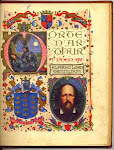







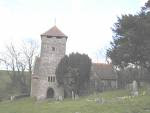
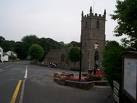




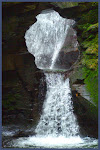


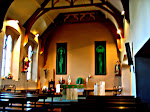









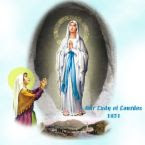


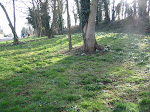

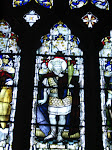
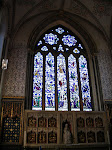
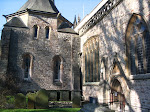
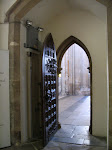
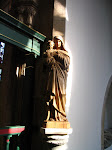


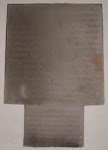



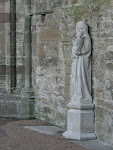









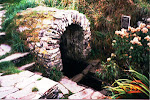


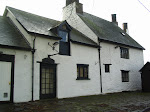
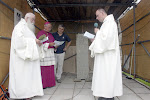



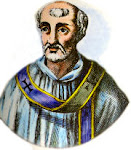
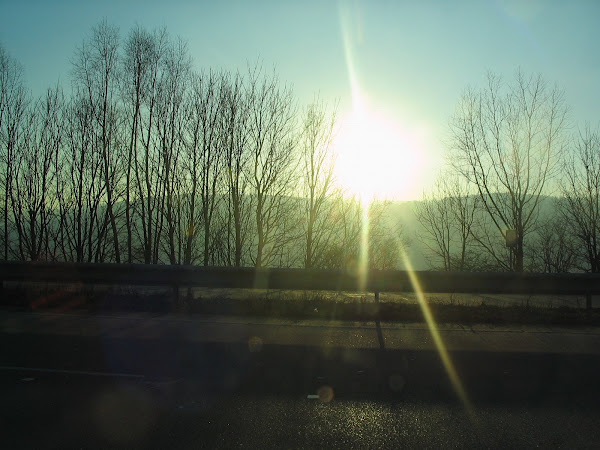


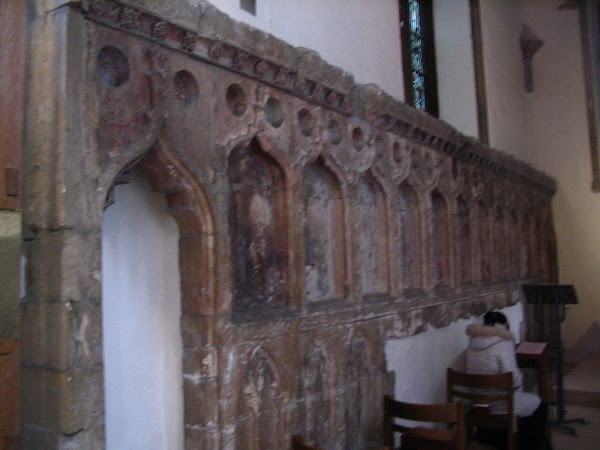
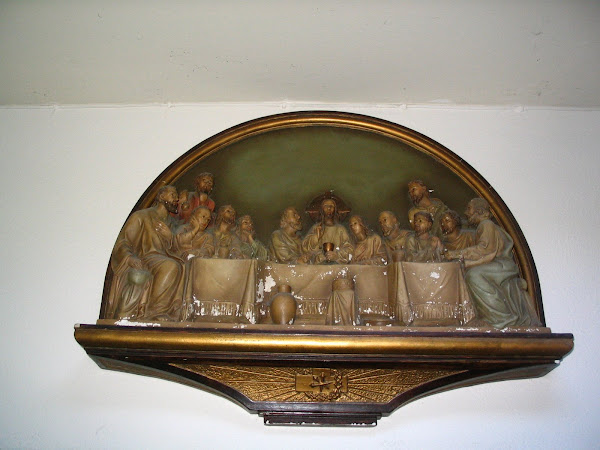




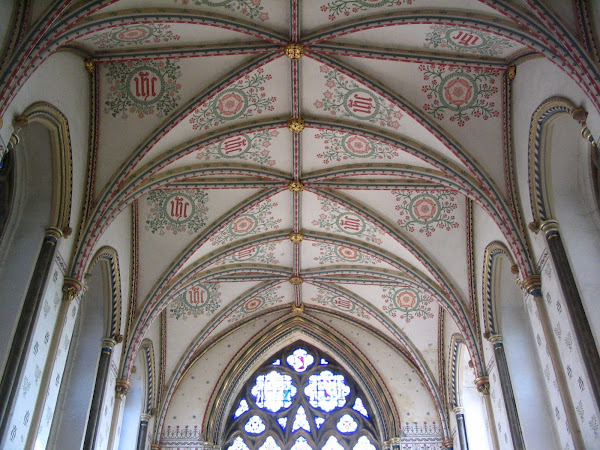


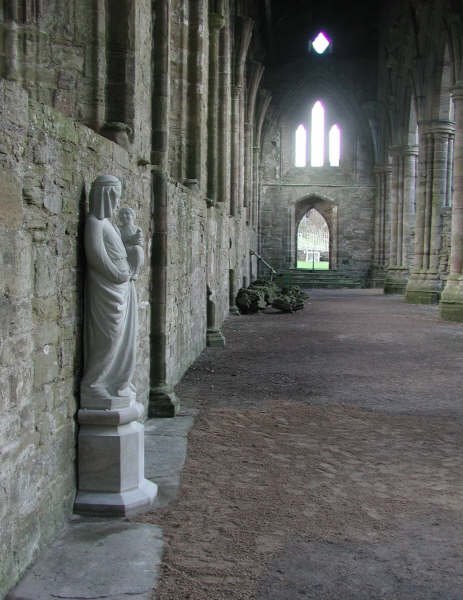
No comments:
Post a Comment